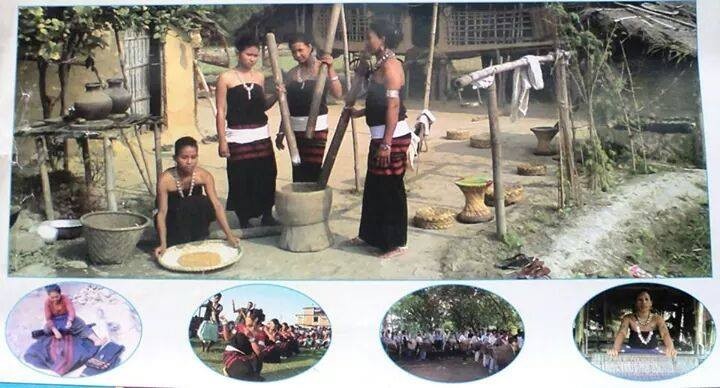Dhimal Caste of Nepal Professional
Aug 21st, 2023 at 11:48 Blogs Nepalgunj 814 views Reference: 690Location: Nepalgunj
Price: Contact us
Dhimal Caste of Nepal
Introduction
Nepal is a country renowned for its stunning landscapes, diverse cultures, and the harmony with which various ethnicities coexist. Among its rich tapestry of traditions, the Dhimal caste stands out, a vibrant and resilient community with a deep connection to the Terai region in the southeastern part of the country. In this article, we delve into the history, culture, challenges, and the future of the Dhimal people.
Historical Roots
The Dhimal caste has a history that stretches back for centuries. They are indigenous to the Terai region of Nepal, and their presence in this lush, subtropical area is intertwined with the local ecology and its resources. The Dhimal community has traditionally lived in close proximity to forests, wetlands, and rivers, and their lives have been shaped by these natural surroundings.
Cultural Significance
The Dhimal people have a distinct cultural identity, which is deeply rooted in their environment. They have a rich oral tradition, with folklore and legends passed down through generations. Their language, which is of Tibeto-Burman origin, is a vital part of their heritage. It's a complex language with unique dialects.The Dhimal are also known for their vibrant festivals and rituals. The "Sorathi" festival, celebrated in the Terai region, is a prime example. It involves dance, music, and the offering of local delicacies to their deities. The Dhimal's colorful attire and traditional jewelry are a visual feast and a testament to their cultural pride.
Challenges to Dhimal Culture
While the Dhimal culture is rich and resilient, it faces several challenges in the modern era. One of the most significant challenges is the encroachment of their traditional lands. Rapid urbanization and agricultural expansion in the Terai region have led to deforestation and a loss of habitat for the Dhimal people. This not only affects their way of life but also threatens the biodiversity of the region. Another pressing issue is education. Many Dhimal children have limited access to quality education, which hampers their ability to compete in the job market and participate fully in the broader society. Efforts to improve educational opportunities for Dhimal youth are crucial for their community's development.
The Role of Women
In Dhimal society, women have played a central role in preserving cultural traditions. They are responsible for passing down knowledge about rituals, traditional healing practices, and the Dhimal language to younger generations. Despite the challenges faced by Dhimal women, they continue to be pillars of strength within their families and communities.
Dhimal Livelihoods
Traditionally, the Dhimal people have been subsistence farmers and hunters. They have relied on the forests and rivers for their livelihoods, cultivating crops and gathering forest products. However, with the changing landscape of the Terai region, many Dhimal have had to adapt to new livelihoods, including wage labor and small-scale businesses.
Cultural Preservation Efforts
Despite the challenges, there are several initiatives aimed at preserving Dhimal culture. Organizations and activists are working tirelessly to document Dhimal traditions, promote education, and raise awareness about the importance of preserving their unique way of life. These efforts are vital for the sustainability of Dhimal culture in the face of modernization.
Looking Forward
The Dhimal caste is at a crossroads. As Nepal continues to develop and modernize, the Dhimal people face the challenge of preserving their cultural heritage while adapting to a changing world. It is a delicate balancing act that requires support from both the government and civil society. One way forward is through sustainable development initiatives that respect the Dhimal people's connection to their environment. This includes efforts to protect the forests and wetlands that are essential to their way of life and the biodiversity of the region. Education is another critical component of the Dhimal community's future. Access to quality education can empower Dhimal youth to pursue diverse career opportunities while maintaining their cultural identity. Furthermore, promoting cultural exchange and tourism that respects Dhimal traditions can provide economic opportunities for the community while fostering understanding and appreciation between different cultures.
Conclusion
The Dhimal caste of Nepal represents a unique and resilient community with a deep connection to the natural world around them. As Nepal modernizes, it is crucial to recognize and support the efforts to preserve Dhimal culture and heritage. Their traditions, language, and way of life are not just a part of their identity but also a valuable contribution to the diverse cultural mosaic of Nepal. In a world where cultures are constantly evolving and sometimes fading away, the story of the Dhimal people serves as a reminder of the importance of preserving and celebrating the rich tapestry of human heritage that enriches our global society.







The Dhimal or Dhemal (Nepali: धिमाल) are an Kirati ethnic group residing in the eastern Terai of Nepal. They are a Sino-Tibetan-speaking ethnic group of the eastern Terai. They mainly reside in Morang and Jhapa districts of Nepal as well as in Darjeeling district of West Bengal, India.